Search Images
Browse Content (p. 1572)
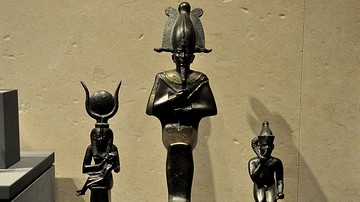
Image
Divine Family from Ancient Egypt
Bronze collection of divine figures: the goddess Isis (left) with the child Horus, the god Osiris (middle), and the god Harpokrates (right) wearing the double crown. Egypt, Saite period to Ptolemaic period, 7th to 4th centuries BCE. State...
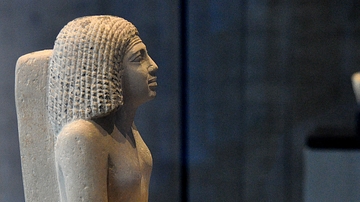
Image
Statue of Nefret-Iabet
Limestone statue of the seated figure of Nefret-Iabet, daughter of the Egyptian pharaoh Khufu. From Giza, Old Kingdom of Egypt, 4th Dynasty, 2580 BCE.
State Museum of Egyptian Art, Munich, Germany.
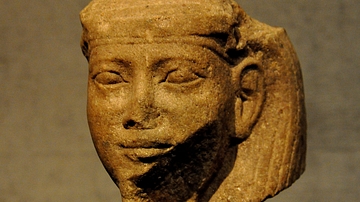
Image
God Sopdu
Quartzite head of god Sopdu (Sopedu or Septu). From modern-day Egypt. Middle Kingdom, 12th Dynasty, circa 1950-1900 BCE. (State Museum of Egyptian Art, Munich, Germany).
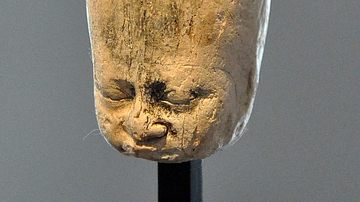
Image
Pharaoh Khufu
Limestone head from a statuette of the Egyptian pharaoh Khufu (Kheops). From modern-day Egypt. Old Kingdom, 4th Dynasty, circa 2600 BCE. (State Museum of Egyptian Art, Munich, Germany).
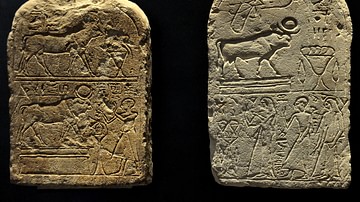
Image
Mnevis Bull Stelae
Two limestone votive stelae of the Mnevis (also written Mer-Wer) bull. From Heliopolis, modern-day Egypt. New Kingdom, 19th and 20th Dynasties, 12th century BCE. (State Museum of Egyptian Art, Munich, Germany).
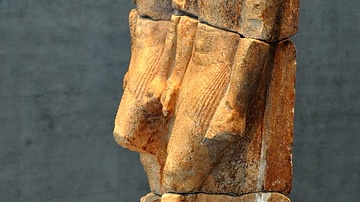
Image
Pharaoh Niuserre
Calcite double statue of the Egyptian pharaoh Niuserre (also written Nyuserre Ini, Neuserre Izi, or Niuserre Isi). He stands and strides. The pharaoh is depicted as an old man and a young man. From modern-day Egypt. Old Kingdom, 5th Dynasty...
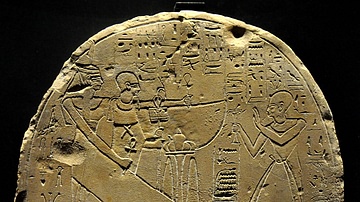
Image
Stela of Kaha
Limestone stela of the head sculptor Kaha. From Deir El-Madinah, Western Thebes, modern-day Egypt. New Kingdom, 20th Dynasty, circa 1150 BCE. (State Museum of Egyptian Art, Munich, Germany).
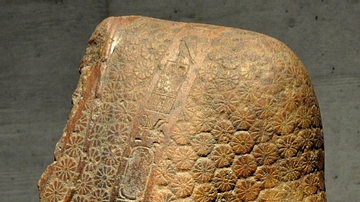
Image
Priest Montemhat
Only part of this quartzite statue of the priest Montemhat has survived. He stands and strides and wears a panther skin. From Thebes, modern-day Egypt. Saite period, 26th Dynasty, circa 650 BCE. (State Museum of Egyptian Art, Munich, Germany...
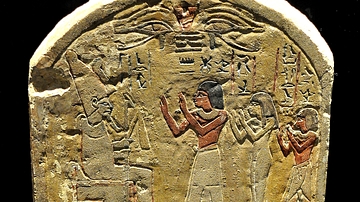
Image
Stela of Menkheper
Limestone stela of Menkheper and his family. Egypt, New Kingdom, 18th Dynasty, circa 1500 BCE. (State Museum of Egyptian Art, Munich, Germany).
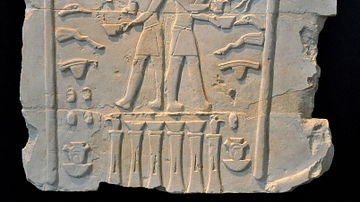
Image
Offering Scene from the Tomb of Akhethetep
This limestone fragment depicts an offering scene. It was found inside the tomb of the high dignitary of Egypt Akhhethetep. From the mastaba (eternal house) of Akhhethetep, Saqqara (Sakkara), Egypt. Old Kingdom, 3-4 Dynasty, 2700-2600 BCE...